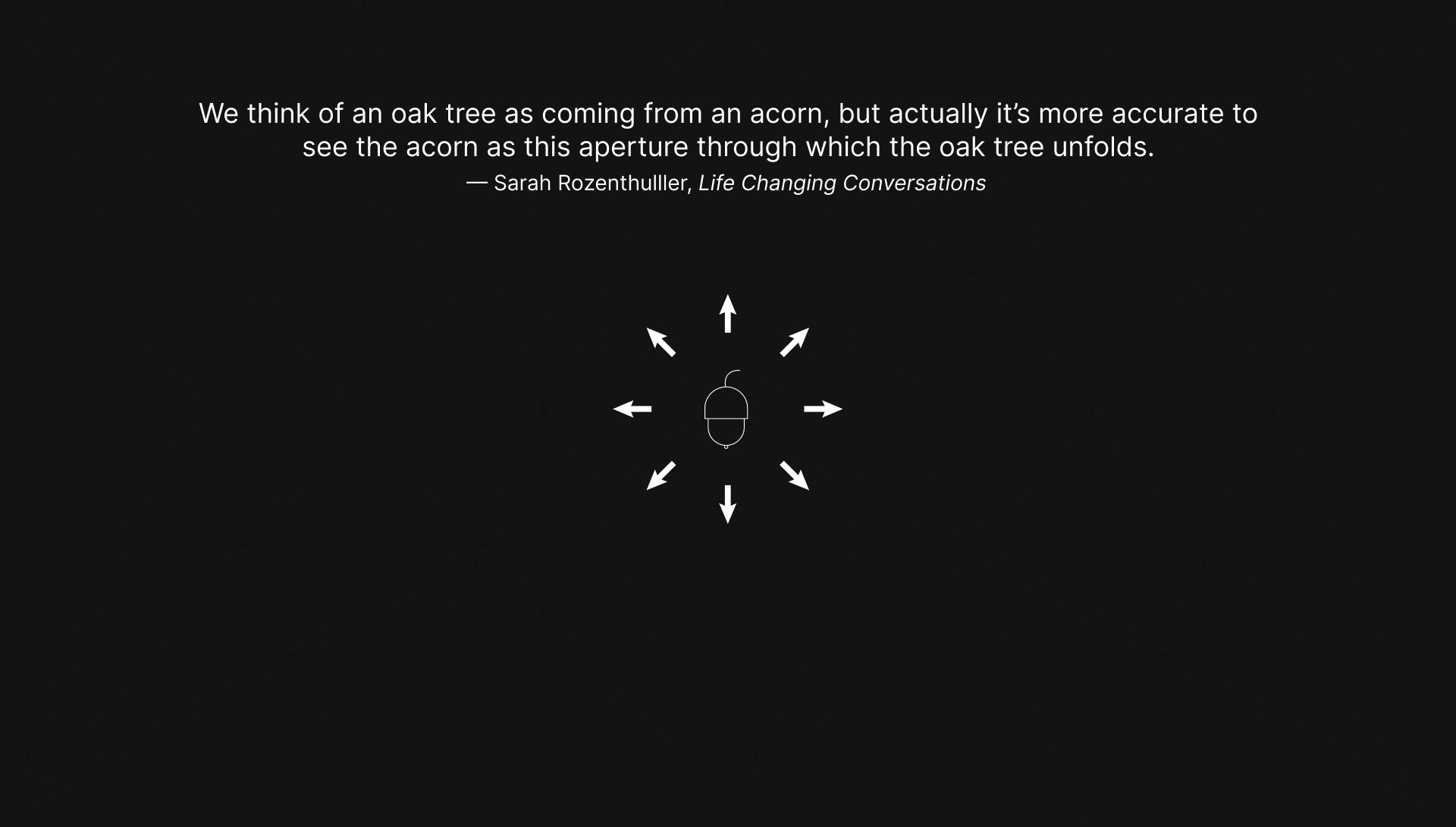Unfolding Invisible Power
Every conversation is an opportunity for us to lead change and unfold life and work in a new way.

— David Bohm, On Dialogue
Unfolding invisible power
My conversations and interviews with pioneering leaders at Forward Thinking Workplaces have resulted in many insightful moments.
I suddenly grasp a new way to understand or look at the world, and my world changes around me — naturally and effortlessly.
One of those aha moments occurred while reading Life Changing Conversations by Sarah Rozenthuler.
It was Sarah who introduced me to a profound idea that came from the physicist David Bohm.
Based on his work and research in quantum physics that revealed the hidden nature of our world, Bohm believed it was more accurate to say that reality unfolds from an unseen order.
In his book, Wholeness and the Implicate Order, Bohm revealed the tremendous implications his theories have for our understanding of science and the world we live in.
One of Bohm’s favorite metaphors for helping people grasp his ideas was to talk about a seed as an aperture.
In a sense, he saw the seed as the mechanism that organizes all the growth processes that create a plant or tree.
Sarah had more to say in her book, so I asked her to talk more about this fascinating idea from Bohm when I interviewed her.
Here is what she had to say in an excerpt taken from my book, The Future of the Workplace:
“It’s interesting that you picked up on the metaphor of the aperture, for which I’d have to acknowledge the work of David Bohm, the quantum physicist, and his ideas around dialogue.
As I said in my book,
"The word aperture fired my imagination and ignited all sorts of questions in my mind. What if, I said to myself, I was to see each conversation as an opening through which my life unfolded? What difference would it make to my life if I engaged with another person in a way that kept the space between us as expansive as possible?
We think of an oak tree as coming from an acorn, but actually, it’s more accurate to see the acorn as this aperture through which the oak tree unfolds. It’s not just about the acorn.
There have to be the right nutrients in the soil, the right amount of sunshine and moisture in the air.”

The unfolding power of conversation
This idea of seeing conversations as an aperture through which life unfolds was a paradigm shift for me.
I now realize that every conversation is an opportunity for us to lead change and unfold life in a new way.
In my case, I caught my first glimpse of something very intriguing when I started interviewing experts and asking them, “What is your best improvement strategy?”
The answers were surprising, profound, and unexpected. Not only for me but often for the person I was speaking to and others. In an Amazon review of my book 5 Minutes to Process Improvement Success, one reader wrote:
"I feel every one of the interviews provides valuable insight with many takeaways for the future. I wouldn’t doubt folks who read this literary piece will frequently be returning to review what they had read here in the past." — Mario Hyland, VP AEGIS.net
Even a small change to a conversation can have a far-reaching impact.
After all, properly nourished, even a tiny acorn can grow into a mighty oak tree.
Learn more in a preview of my interview with Sarah at How to Create the Right Conditions for Stunning Conversations.
In her book, Sarah talks about the seven strategies needed to help people talk about what matters most.
Three big ideas stood out for me in this compelling interview that can lead us to have more significant conversations:
- People will only find their voice and share their thinking if they feel safe.
- Making a workplace more innovative and more fulfilling for human beings is to help people drop their masks and show up more authentically.
- Part of the journey is learning to manage difficult emotions in oneself and other people.
How might you approach your next conversation with this new understanding?
— Bill
— David Bohm